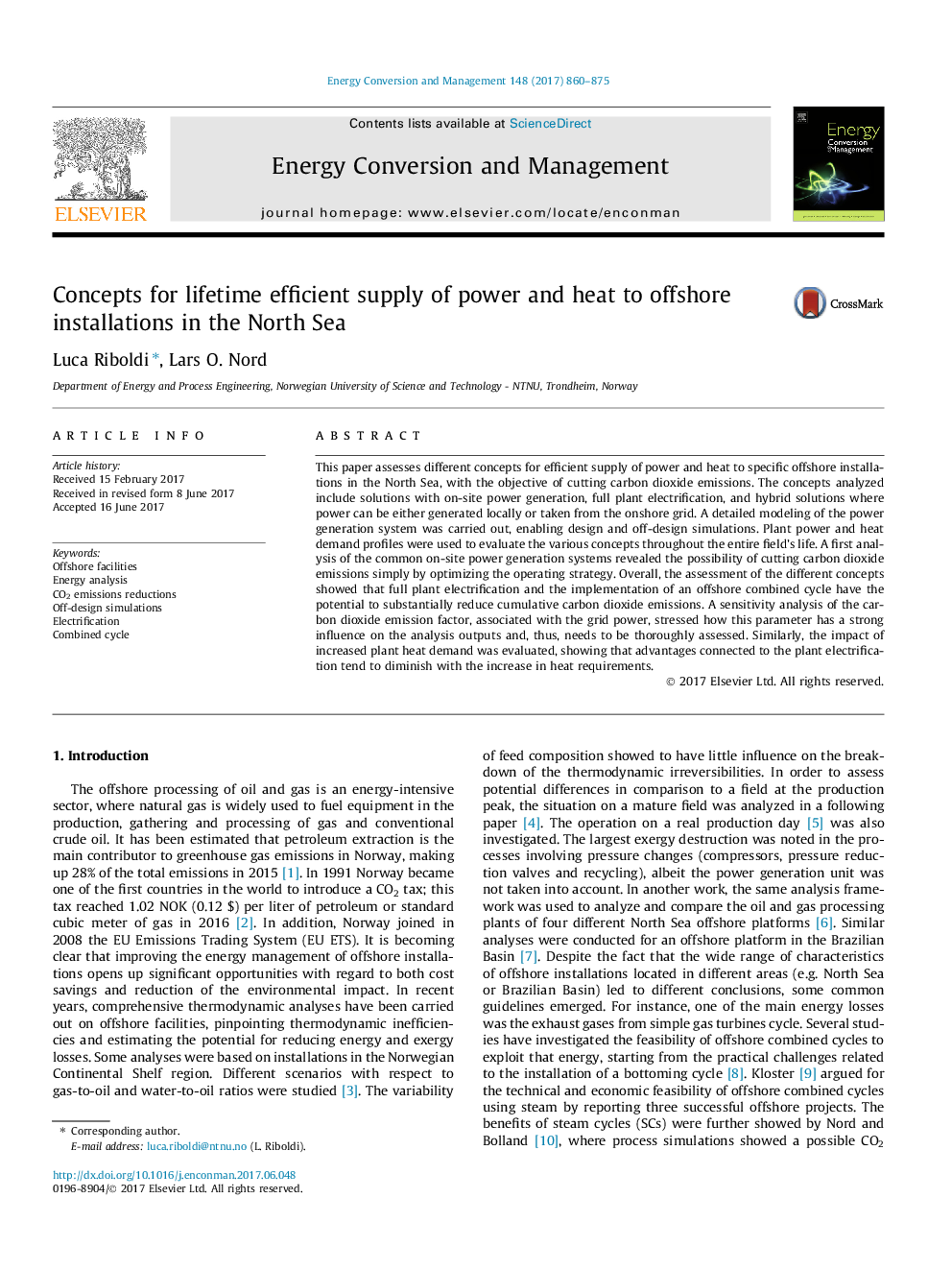| Article ID | Journal | Published Year | Pages | File Type |
|---|---|---|---|---|
| 5012545 | Energy Conversion and Management | 2017 | 16 Pages |
Abstract
This paper assesses different concepts for efficient supply of power and heat to specific offshore installations in the North Sea, with the objective of cutting carbon dioxide emissions. The concepts analyzed include solutions with on-site power generation, full plant electrification, and hybrid solutions where power can be either generated locally or taken from the onshore grid. A detailed modeling of the power generation system was carried out, enabling design and off-design simulations. Plant power and heat demand profiles were used to evaluate the various concepts throughout the entire field's life. A first analysis of the common on-site power generation systems revealed the possibility of cutting carbon dioxide emissions simply by optimizing the operating strategy. Overall, the assessment of the different concepts showed that full plant electrification and the implementation of an offshore combined cycle have the potential to substantially reduce cumulative carbon dioxide emissions. A sensitivity analysis of the carbon dioxide emission factor, associated with the grid power, stressed how this parameter has a strong influence on the analysis outputs and, thus, needs to be thoroughly assessed. Similarly, the impact of increased plant heat demand was evaluated, showing that advantages connected to the plant electrification tend to diminish with the increase in heat requirements.
Related Topics
Physical Sciences and Engineering
Energy
Energy (General)
Authors
Luca Riboldi, Lars O. Nord,
